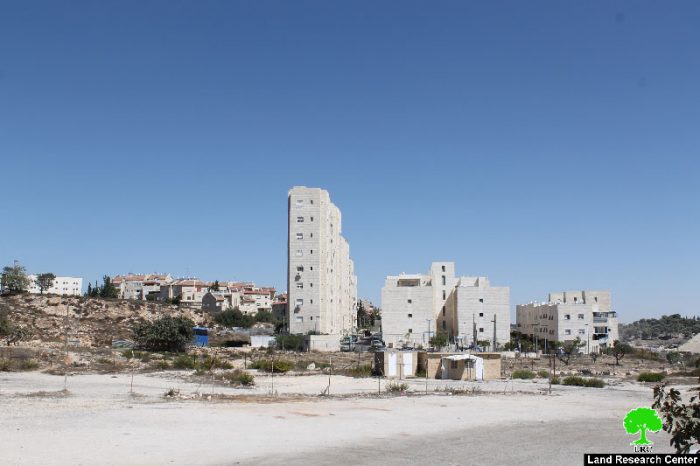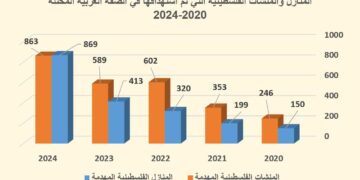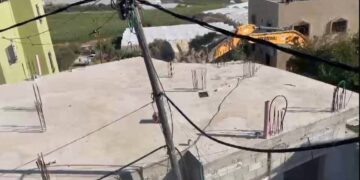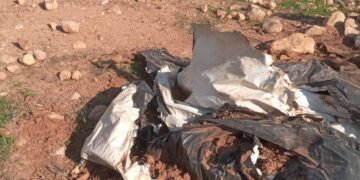The occupation municipality’s bulldozers demolished on September 27, 2016 parts of the house of Saeed Qassas in the town of Beit Safafa south of Jerusalem near “Gilo” settlement.
Qassas told Land Research Center the following:
" We have been residing in this house since 1967. The house is founded on lands from Beit Safafa town and is of 60m2 in area. In 2000, I expanded the building by annexing another 60m2 to accommodate my son and his wife and son. The annexed structure is composed of bedroom, kitchen and bathroom. Note that we share the kitchen and the bathroom.
In 2013, employees from the municipality arrived at the location, took some photos and summoned me to appear before court, which later fined me an amount of 21,000 NIS on the claim that the house was built without a license. Attorney Tawfiq Darawsheh followed up on my case after he was hired by Palestinian Authorities. Court sessions lasted for three years. In 2016, we were surprised when Israeli police raided the area, encircled the residence, evacuated residents and brought it down via a Hyundai dozer.
He also added:
" Policemen assaulted my wife and made fun of her. They also terrified us by their dogs, confiscated our phones and cut off electricity cables before bringing down the annexed part of the house. Demolition lasted for an hour and was finished at 1:00 p.m..
Now, my married son, Mu'taim moved to live my brother in Bethlehem city until he finds a new place to settle down in. I will build another kitchen and bathroom since my family uses mobile bathroom relative to a construction company in the area"


Photos 1-2: the demolished structure of Qassas family
It should be marked that the targeted house is adjacent to the bypass road no.60 that links Hebron with Jerusalem. Note that the house entrance passes through Gilo colony and is only hundred meters away from the apartheid.
Photo : Gilo colony that is founded on confiscated lands from Bethlehem and Jerusalem cities
About Beit Safafa:
It is 6km to the southeast of Jerusalem city. The town is edged by the occupied territories of 1948 from the north, Sharafat village from the west, Talpiyot colony from the east and Bethlehem from the south.
Beit Safafa has a total population of 20,000 people until 2008, who live on 866 dunums of buit-up area out of the 3259 dunums total area.
Israeli colonies confiscated 920 dunums from the town's lands as follows:
- Har Homa: it was established in 1977 and is now inhabited by 1125 colonists. It confiscated 170 dunums from Beit Safafa.
- Givat Hamatos: it was established in 1991 and confiscated 284 dunums form the town.
- Gilo: it was established in 1971 and is now inhabited by 27569 colonists. It confiscated 466 dunums from the town.
Land Research Center LRC sees that demolitions contradict with all of the International conventions and Humanitarian laws including:
- Article 17 of the (1948) Universal Declaration of Human Rights stating: “Everyone has the right to own property alone as well as in association with others. No one shall be arbitrarily deprived of his property.”
- Section ‹G› of article 23 of the (1907) The Hague Conventions asserting: “In addition to the prohibitions provided by special Conventions, it is especially forbidden to destroy or seize the enemy's property, unless such destruction or seizure be imperatively demanded by the necessities of war.”
- Article 53 of the Geneva Fourth Convention (1948) declaring: “Any destruction by the Occupying Power of real or personal property belonging individually or collectively to private persons, or to the State, or to other public authorities, or to social or cooperative organizations, is prohibited, except where such destruction is rendered absolutely necessary by military operations.”
- Section 1, Article 11 of the International Covenant on Economic, Social and Cultural Rights (1966): “The States Parties to the present Covenant recognize the right of everyone to an adequate standard of living for himself and his family, including adequate food, clothing and housing, and to the continuous improvement of living conditions. The States Parties will take appropriate steps to ensure the realization of this right, recognizing to this effect the essential importance of international co-operation based on free consent."
Prepared by
The Land Research Center
LRC














